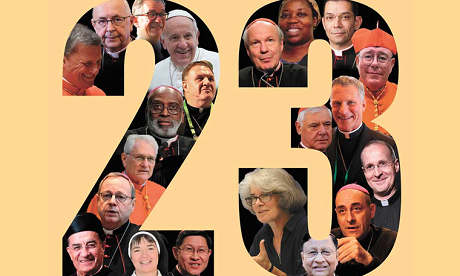On the night before he died, Jesus prayed to his Father: ‘May them be one as we are one.’ (John 17.11).
But from the beginning, in almost every document of the New Testament, we see the disciples divided, quarrelling, excommunicating each other. We are gathered in this Synod because we too are divided and hope and pray for unity of heart and mind.
This should be our precious witness in a world which is torn apart by conflict and inequality. The Body of Christ should embody that peace which Jesus promised and for which the world longs.
Yesterday I looked at two sources of division: Our conflicting hopes and different visions of the Church as home.
But there is no need for these tensions to tear us apart; We are bearers of a hope beyond hope, and the spacious home of the Kingdom in which the Lord tells us there are ‘many dwelling places’ (John 14.1).
Of course not every hope or opinion is legitimate.
But orthodoxy is spacious and heresy is narrow. The Lord leads his sheep out of the small enclosure of the sheepfold into the wide-open pastures of our faith. At Easter, he will lead them out of the small locked room into the unbounded vastness of God, ‘God’s plenty[1]’.
So let us listen to him together. But how?
A German bishop was concerned by ‘the biting tone’ during their synodal discussions. He said they had been ‘more like a rhetorical exchange of verbal blows” than an orderly debate.’[2]
Of course, orderly rational debates are necessary. As a Dominican, I could never deny the importance of reason! But more is needed if we are to reach beyond our differences.
The sheep trust the voice of the Lord because it is that of a friend. This Synod will be fruitful if it leads us into a deeper friendship with the Lord and with each other.
On the night before he died, Jesus addressed the disciples who were about to betray, deny, and desert him, saying: ‘I call you friends.’ (John 15.15).
We are embraced by the healing friendship of God which unlocks the doors of the prisons we create for ourselves.
“The invisible God speaks to men and women as friends” (Vatican II, Dei Verbum, 2). He opened the way into the eternal friendship of the Trinity.
This friendship was offered to his disciples, to tax collectors and prostitutes, to lawyers and foreigners. It was the first taste of the Kingdom.
Both the Old Testament and classical Greece and Rome considered such friendships impossible. Friendship was only between the good.
Friendship with the wicked was considered impossible. As Psalm 26 says, ‘I hate the company of evildoers and will not sit with the wicked’ (v23).
The bad do not have friendships since they only collaborate for evil deeds. But our God was always inclined to shocking friendships. He loved Jacob the trickster; and David, the murderer and adulterer; and Solomon the idolater.
Also, friendship was only possible between equals. But grace lifts us up into the divine friendship. Aquinas says solus Deus deificat, ‘only God can make us godlike.’[i]
Today is the Feast of the Guardian Angels, who are signs of the unique friendship that God has for each of us. The Holy Father said on the Feast of the Guardian Angels, ‘No one journeys alone and no one should think that they are alone[3]’.
As we journey, we are each embraced by the divine friendship.
Preaching the gospel is never just communicating information.
It is an act of friendship. A hundred years ago, Vincent McNabb OP said, ‘Love those to whom you preach. If you do not, do not preach.
Preach to yourself.’ St Dominic was said to have been loved by all since he loved all. St Catherine of Siena was surrounded by a circle of friends: men and women, lay and religious.
They were known as the Caterinati, the Catherine people. St Martin de Porres is often shown with a cat, a dog, and a mouse eating from the same dish. A good image of religious life!
There were no easy friendships between men and women in the Old Testament. The Kingdom broke in with Jesus surrounded by his friends, men and women.
Even today, many people doubt the possibility of any innocent friendship between men and women. Men fear accusation; women fear male violence; the young fear abuse. We should embody the spacious friendship of God.
So we preach the gospel by friendships that reach across boundaries. God reached across the division between Creator and creature.
What impossible friendships can we make?
- Father Timothy Radcliffe, OP, is an English Catholic priest and Dominican friar who served as master of the Order of Preachers from 1992 to 2001. This is Part 3 of the reflection he shared with those about to attend the General Assembly of the Synod of Bishops, which began yesterday.
News category: Analysis and Comment.




